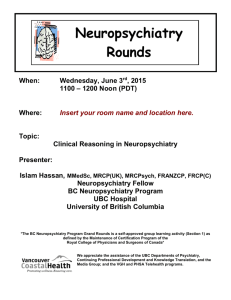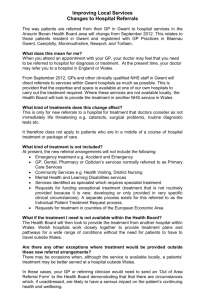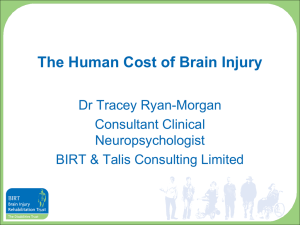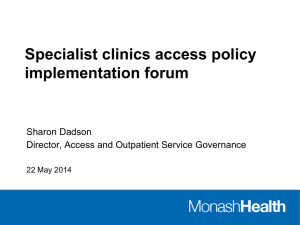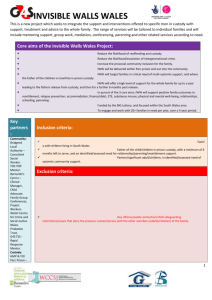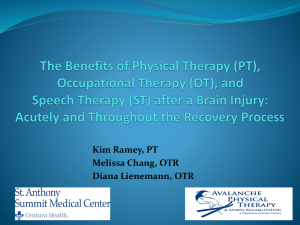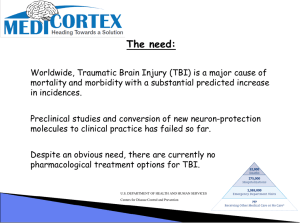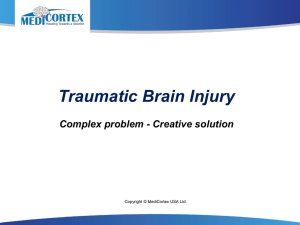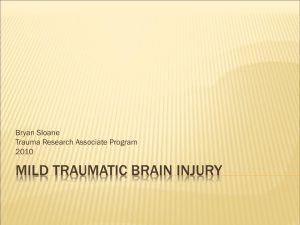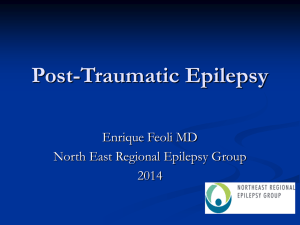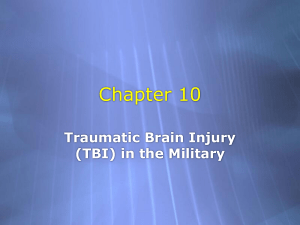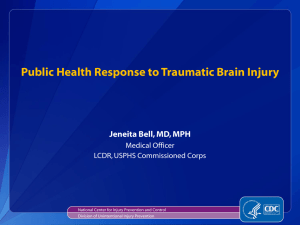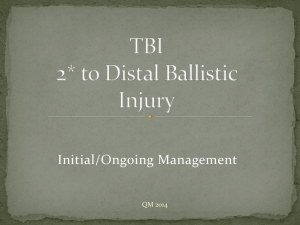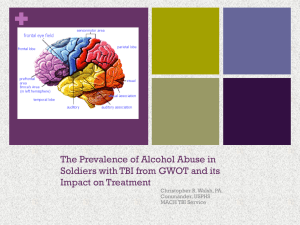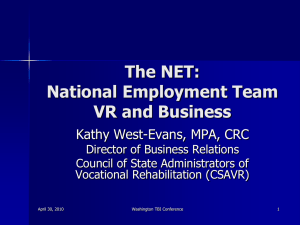Benefits of Local Brain Injury Services
advertisement
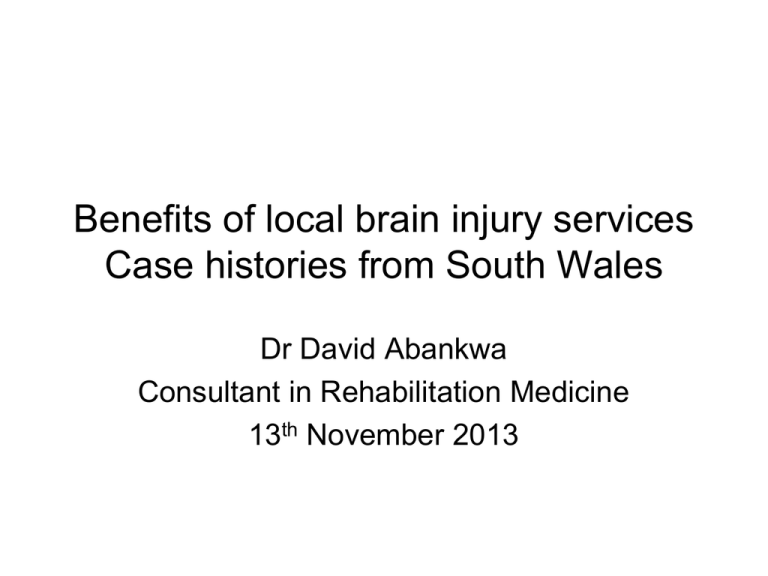
Benefits of local brain injury services Case histories from South Wales Dr David Abankwa Consultant in Rehabilitation Medicine 13th November 2013 John • 38 year old male • TBI following assault • Initially managed conservatively, but readmitted for evacuation of bilateral chronic SDH via burr holes, transferred to local DGH and discharged home • History of excessive use of alcohol • Post TBI epilepsy, on Phenytoin • Parents in England, was living with partner in West Wales John • Seen in clinic after six months(? reason for delay) • C/o headaches, confusion, poor memory, tremor of hand • Carer (friend) reported “change in personality” – less outgoing than previously • Housebound due to fear of having more seizures John • Outcome of consultation: – Brain injury advice/ information given – Advise re pain medication containing codeine – Review of anti-epileptic medication – Offer of inpatient review but patient not keen to come in, – Enquiries about brain injury teams where parents live John • • • • Admitted to local DGH with “epileptic fits” Transferred to surgical ward Referral to NRU and reviewed by me Significant behaviour component to reported seizures (pseudo-seizures) • Referral sent to Neurologists • Significant conflict with nurses while on ward (lack of understanding of brain injury) John • Eventually discharged to girlfriend’s house but not allowed to have contact with her children • Neuropsychological assessment showed deterioration in attention and verbal fluency as well as executive functioning • Recommended referral to residential brain injury unit and Neuropsychiatry unit in Whitchurch John • Currently – Occupational Therapist identified locally, willing to accept referral and identify appropriate person to see – No community brain injury team in his locality – Living with parents in England, community brain injury team identified – Referral to Neuropsychiatry unit Dave • • • • • • • 42 year old male TBI when fell off trailer in England GCS 14/15 but agitated, sedated CT scan multiple pockets of air in brain, Managed conservatively Returned home with no follow up arranged Previously extremely hardworking but after TBI struggled to maintain successful business which eventually failed Dave • Problems in marital relationship eventually leading to separation • Depression with three attempts at suicide/ self harm • Under care of local Mental Health services • “Emergency” admission to specialist brain injury unit in England but able to afford only two weeks, found input beneficial Dave • Had case manager through compensation claim, eventually referred to Rookwood and then to us and Neuropsychiatry • Keen to go back to brain injury unit but issue with funding • Currently under care of OT via Mental Health services in West Wales Issues • Coordination of services – transfers out of N/surgical unit do not always come to our attention • Lack of services for all patients with ABI • Awareness of our services especially in West Wales • Willingness of patients to travel for residential placements • Accessibility due to funding constraints How can a local BIRT unit help us? • Geographical accessibility • Organisation with national/ international reputation • Evidence base for interventions including economic benefit • Long term follow up for clients discharged from their units Barriers to access • Funding – Application usually done via IPFR route which requires the demonstration of “exceptionality” – Eligibility of patients for CHC funding can be hard to demonstrate using “decision support tool” – Need to demonstrate cost benefit – Arguments regarding whether responsibility is health or social Thoughts …. • Provision of non residential services, possibly in a location closer to areas of greatest need (Ceredigion, Pembs) • Joint projects with NHS and voluntary sector organisations eg Headway • Considerations about equity of access • Helping to make a case to Commissioners re benefits of unit – In due course local “good news” stories can help Questions?

